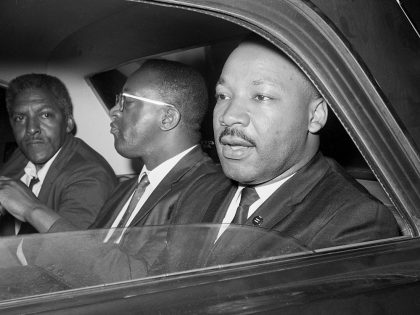
The Tragedy of Bayard Rustin
How one of the greatest American socialists ended up on the wrong side of history.
Page 1 of 6Next

How one of the greatest American socialists ended up on the wrong side of history.

Bayard Rustin and A. Philip Randolph’s Jobs and Freedom Strategy offers a path forward for a Left that has become increasingly insular, minoritarian, and powerless.

At the height of a calamitous war presided over by a Democratic president, the brilliant socialist organizer Bayard Rustin tried to forge a mass coalition to deliver progressive change. His failure to do so in the 1960s tells us much about building one today.

Netflix’s new feel-good Bayard Rustin biopic, Rustin, claims the civil rights hero has been forgotten because of his sexuality. But it was his fiery and provocative class politics that makes him both controversial and prophetic today.

Activist and organizer Norman Hill was present for every major development in the civil rights movement during the 1960s. He spoke to Jacobin about the arc of the movement, the legacy of its leadership, and the lessons for the modern left.

In 1950s America, the Cold War was raging, but socialists were playing key roles in the early civil rights movement. We can’t afford to let that radical history be sanitized.

A generation ago, socialists and civil rights activists tried to transform the Democratic Party. Why did they fail?

Martin Luther King Jr’s “I Have a Dream” speech, like much of MLK’s legacy, is selectively remembered. It attacked the material roots of American racism, just as his anti–Vietnam War speech five years later excoriated American militarism.

The tendency to divorce racial disparities from economic inequality has a long liberal lineage.

Political strategist Waleed Shahid explains why the Uncommitted movement’s organizing at the Democratic National Convention should be seen as successfully moving the needle within the Democratic Party toward justice for Palestine.

For too long, the Left has organized based on caricatures of black political life. If it wants to win, it needs to start recognizing the role of class in black America.

Sixty years ago today, hundreds of thousands gathered at the Washington Mall, where they heard Martin Luther King Jr’s “I Have a Dream” speech. Since then, we’ve beaten a retreat from the march’s vision of racial and economic justice.

Accounts of the life of Martin Luther King Jr often present him as a singularly great individual. Yet MLK was profoundly shaped by a vibrant ecosystem of socialists and labor radicals, from Myles Horton and Rosa Parks to Bayard Rustin and Stanley Levison.

Economic justice has always been at the core of black freedom struggles in the US.

Rosa Parks may be lionized for her defiance on the bus, but that episode doesn’t do justice to her career as an organizer.

A look back at Liberator, an anticolonial magazine that operated during a golden age for black radical publications.

This Easter, we should remember the rich tradition of Christian socialism in the US. And one of that tradition’s most important figures is the radical leader A. J. Muste, whose religious faith animated his commitment to socialism and nonviolence.

Martin Luther King Jr had a rich relationship with socialist politics: he sympathized with but ultimately rejected Marxism, and he settled on a Christian socialism that viewed the struggle against racism and class oppression as fundamentally intertwined.